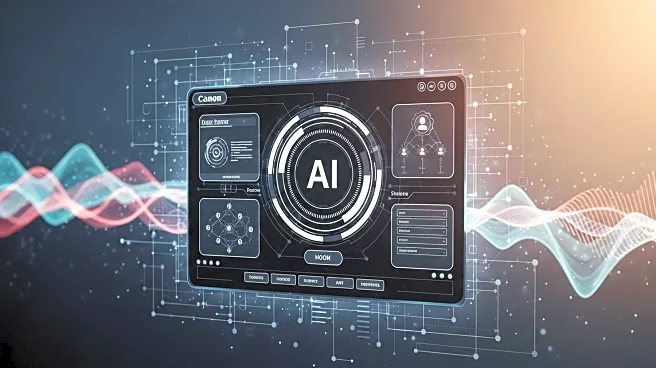What's Happening?
Grace Leung, a digital growth consultant, is helping businesses integrate artificial intelligence (AI) into their workflows to enhance employee performance. Leung emphasizes the importance of AI tools like ChatGPT, Gemini, and Claud in automating tasks and creating efficient workflow systems. She advises clients to start with basic AI prompting skills, which involve using precise language to communicate tasks to AI systems. Leung also highlights the potential of AI in data analysis, where tools can organize and summarize large datasets, providing valuable insights. Despite the benefits, Leung acknowledges the challenges of AI, such as data privacy concerns and the potential for AI to replace entry-level jobs. She stresses the importance of using AI as a tool to complement human judgment rather than replace it.
Why It's Important?
The integration of AI in the workplace is significant as it can lead to increased efficiency and productivity. By automating routine tasks, employees can focus on more strategic activities, potentially leading to innovation and growth within companies. However, the shift towards AI also raises concerns about job displacement, particularly for entry-level positions. This underscores the need for businesses to invest in upskilling their workforce to adapt to new technologies. Additionally, the emphasis on data privacy highlights the importance of establishing clear guidelines to protect sensitive information. As AI continues to evolve, its role in shaping the future of work and its impact on employment and data security will be critical areas for businesses to navigate.
What's Next?
As businesses continue to adopt AI technologies, there will likely be an increased focus on developing comprehensive training programs to equip employees with the necessary skills to work alongside AI. Companies may also need to revisit their data privacy policies to ensure compliance with regulations and protect sensitive information. Furthermore, as AI tools become more sophisticated, businesses will need to continuously evaluate their impact on job roles and consider strategies to mitigate potential job losses. The ongoing dialogue between AI developers, businesses, and policymakers will be crucial in shaping a balanced approach to AI integration in the workplace.
Beyond the Headlines
The ethical implications of AI in the workplace extend beyond immediate productivity gains. The potential for AI to replace human judgment in decision-making processes raises questions about accountability and transparency. As AI systems become more integrated into business operations, ensuring that these systems are designed and used ethically will be paramount. Additionally, the cultural shift towards AI-driven workplaces may require changes in organizational structures and management practices to foster collaboration between humans and machines. Long-term, the successful integration of AI could redefine the nature of work, emphasizing creativity and strategic thinking over routine tasks.








